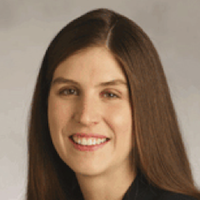From Financial Education to Capability – A Paradigm Shift: Financial education on its own is not enough to improve consumers’ financial health
Paradigm shifts take time. They also take groups of dedicated individuals working together to make the shift happen. For years, a common approach to improving financial health has been classroom-based educational programs, however the results of these efforts are mixed at best. Improved methods that focus more on supporting behavior change in addition to knowledge gains are needed if individuals are going to make significant improvements in their financial lives. My organization, the Center for Financial Services Innovation, together with a wide array of partners, has been working to lead the shift from financial education to a more expansive framework of financial capability.
I recently spoke with the Citi Foundation’s Chief Operating Officer, Brandee McHale, about the importance of this shift and how investing in innovative nonprofits that are testing new ways to help consumers improve their financial capability is bringing about positive, real change for the consumers who need help the most.
Sarah Gordon: In just a few short years, the Citi Foundation and CFSI have been successful in shifting industry focus toward a more expansive financial capability framework that combines access to high-quality products and services with education and guidance. Can you talk about how this work began?
Brandee McHale: In 2004, the Citi Foundation made a 10-year, $200 million commitment to improving global economic literacy through financial education programs. About half way into this commitment, we recognized that while we were successfully catalyzing awareness and replicating classroom based programs, these efforts were limited in helping consumers increase savings, reduce debt, and accumulate assets.
In 2009, in partnership with CFSI, we assessed the landscape of promising strategies for affecting consumers’ financial behavior and concluded that financial education on its own was not doing enough to improve consumers’ financial health. We set out to create tangible and lasting change in the way consumers interact with their finances, setting them up to be strong financial stewards. We’ve done that through initiatives like the Financial Capability Innovation Fund (FCIF)—which invests in promising solutions in the financial capability field with the intent of testing what works and scaling successful models. These innovations link relevant and timely financial guidance with well-designed financial products, utilize technology to improve efficiency and increase client engagement, and leverage social networks and behavioral incentives to motivate users to achieve their financial goals.
SG: What have been some of the early successes of the Financial Capability Innovation Fund (FCIF)?
BM: Altogether, CFSI and its partners have invested nearly $5 million in innovative projects through the FCIF. We’ve been pleased at how many innovators are designing solutions that bring the best of access and financial education offerings together in new and different ways. Early results show that positive incentives can be effective and scalable. For example, participants in Mission Asset Fund’s lending circles improved their credit scores by 168 points and reduced debt levels by $4,000 more than those who didn’t participate. Meanwhile, nearly 1,000 Piggymojo users made $44 in average monthly “impulse saves” per participant via their mobile phones. Early results from across the portfolio are promising.
What’s more, we continue to see signs of organizations replicating the innovations supported by FCIF and leading practitioners, policymakers, and funders adopting the financial capability approach. For example, several for-profit online models similar to Mission Asset Fund’s Lending Circles’ model have emerged: Yattos.com, OurSusu.com and emoneypool.com. Thanks to the Financial Capability Innovation Fund, innovators have had the opportunity to bring new ideas to life, ideas that are starting to demonstrate great value to those who have been struggling financially.
SG: What other signs have you seen that the concept of financial capability is gaining traction?
BM: Financial capability is gaining real traction especially among policy makers. In 2010 President Obama signed an Executive Order creating the President’s Advisory Council on Financial Capability. From its beginnings in 2011 the U.S. Consumer Financial Protection Bureau (CFPB) has focused on cutting edge research designed to help us better understand how to help consumers adopt lifelong positive financial behaviors. And just this month the U.S. Department of the Treasury launched its own Financial Empowerment Innovation Fund to support the development of new strategies that promote access and financial capability. It has also been validating how other philanthropic funders are now directing resources to programs that stretch beyond financial education.
SG: What does the future of financial capability look like?
BM: The shift toward financial capability represents an exciting development taking place at a timely moment. As Americans continue to cope with a still soft economy, tools and support that promote positive financial behaviors will continue to be of great need. But more financial institutions need to adopt a financial capability approach; too many are stopping at financial education. With further understanding and deeper adoption of the financial capability concept, nonprofits, government, and the financial services industry stand poised to help low-income and underserved households significantly improve their financial health. Most importantly, this paradigm shift is gaining traction globally. Increasingly, a broad array of stakeholders including governments, practitioners and industry leaders from around the world recognize that building consumer financial capability is critical for achieving financial inclusion for the 2.5 billion people who lack access to the financial services they need to participate in the global economy.

About the Author: As Vice President, Innovation Labs at CFSI in Chicago, Sarah Gordon leads CFSI’s efforts to identify transformative technologies and to foster promising product, service and strategy innovations that advance consumer financial health. Gordon oversees the full range of financial and non-financial supports CFSI offers to seed, build, and reward higher quality innovations in the financial services industry. Prior to joining CFSI, Gordon was the Associate Director at Jane Addams Resource Corporation (JARC). Gordon also served as Director of JARC’s Center for Working Families. She graduated from Northwestern University with a B.A. in Sociology and Urban Studies and a minor in African-American Studies.
For more on CFSI, go to www.cfsinnovation.com and follow on Twitter at @CFSInnovation. Click here to read additional articles by CFSI contributors.

About Brandee McHale: Brandee McHale is the Chief Operating Officer at the Citi Foundation, responsible for shaping the Foundation’s overall strategy, grantmaking programs including Citi Volunteers, and all operational issues. McHale joined Citi in 1991 and has a long history in both business management and philanthropy. Before joining the Foundation, she served as the Director of Operations for Citi Community Capital. Earlier assignments included a series of increasingly responsible positions in Citi’s Community Relations and Community Reinvestment Act departments. In 2005, McHale left Citi to join the Ford Foundation, developing a portfolio of investments that support low-income households’ efforts to participate in the mainstream economy, attain economic self-sufficiency and fulfill asset development goals.
McHale serves as the Vice Chair of the Board of Directors of the Corporation for Enterprise Development (CFED) and is a member of the Local Initiatives Support Corporation Board of Directors. She serves as the chair of the Living Cities Income and Assets Working Group, and is a former board member of Philanthropy NY and the US Asset Funders Network. McHale holds a Master’s Degree in Urban Policy from the New School for Social Research.
For more information about the Citi Foundation, visit www.citifoundation.com. Click here read articles by Citi Foundation contributors.
- Categories
- Education, Impact Assessment
